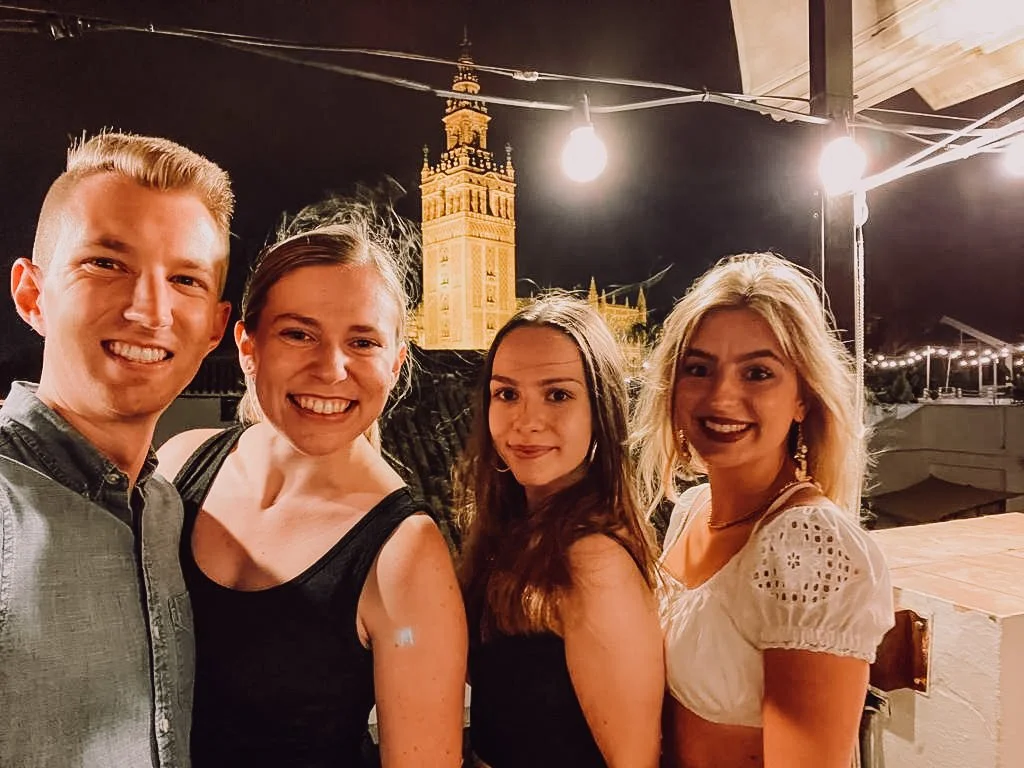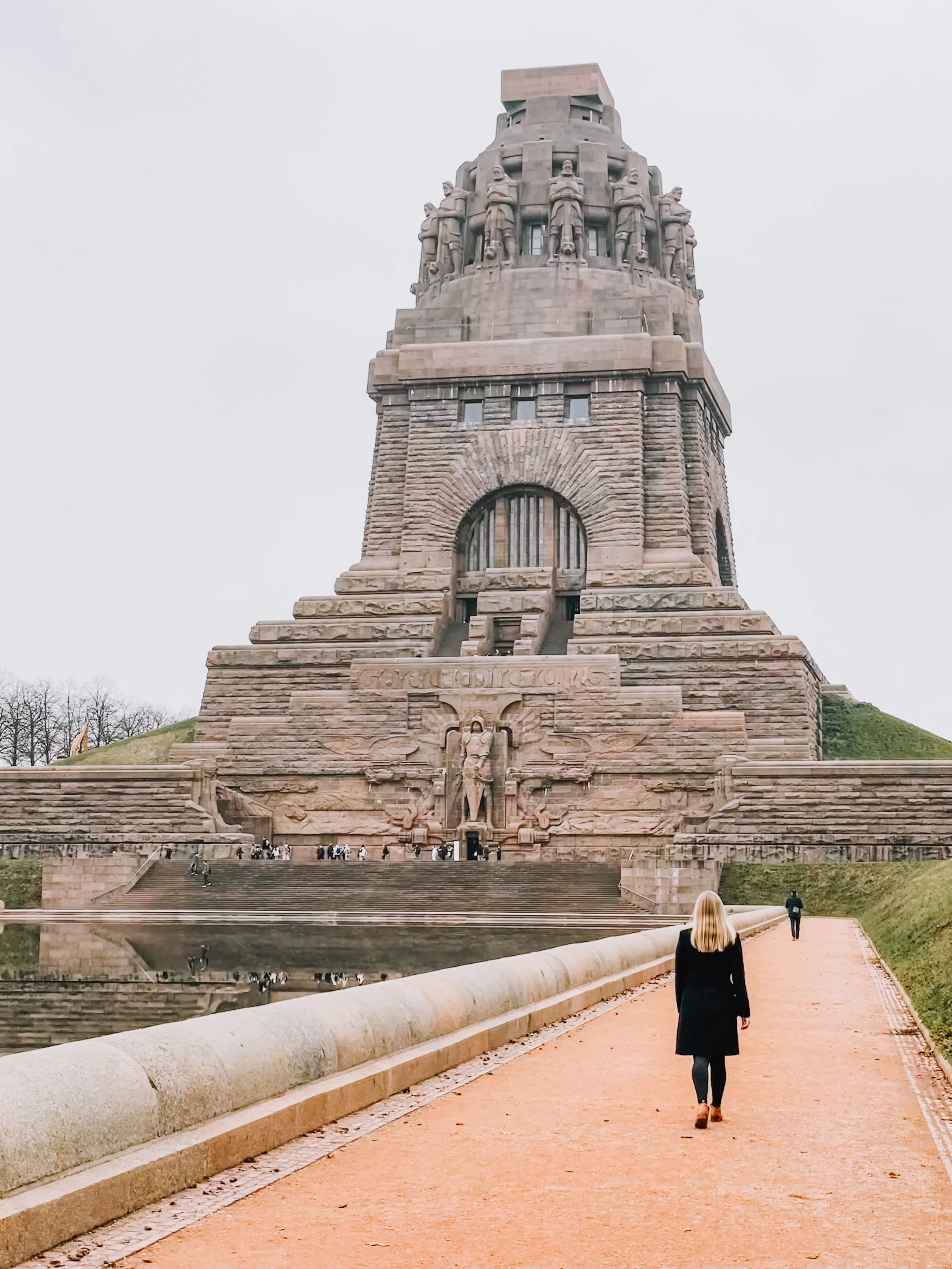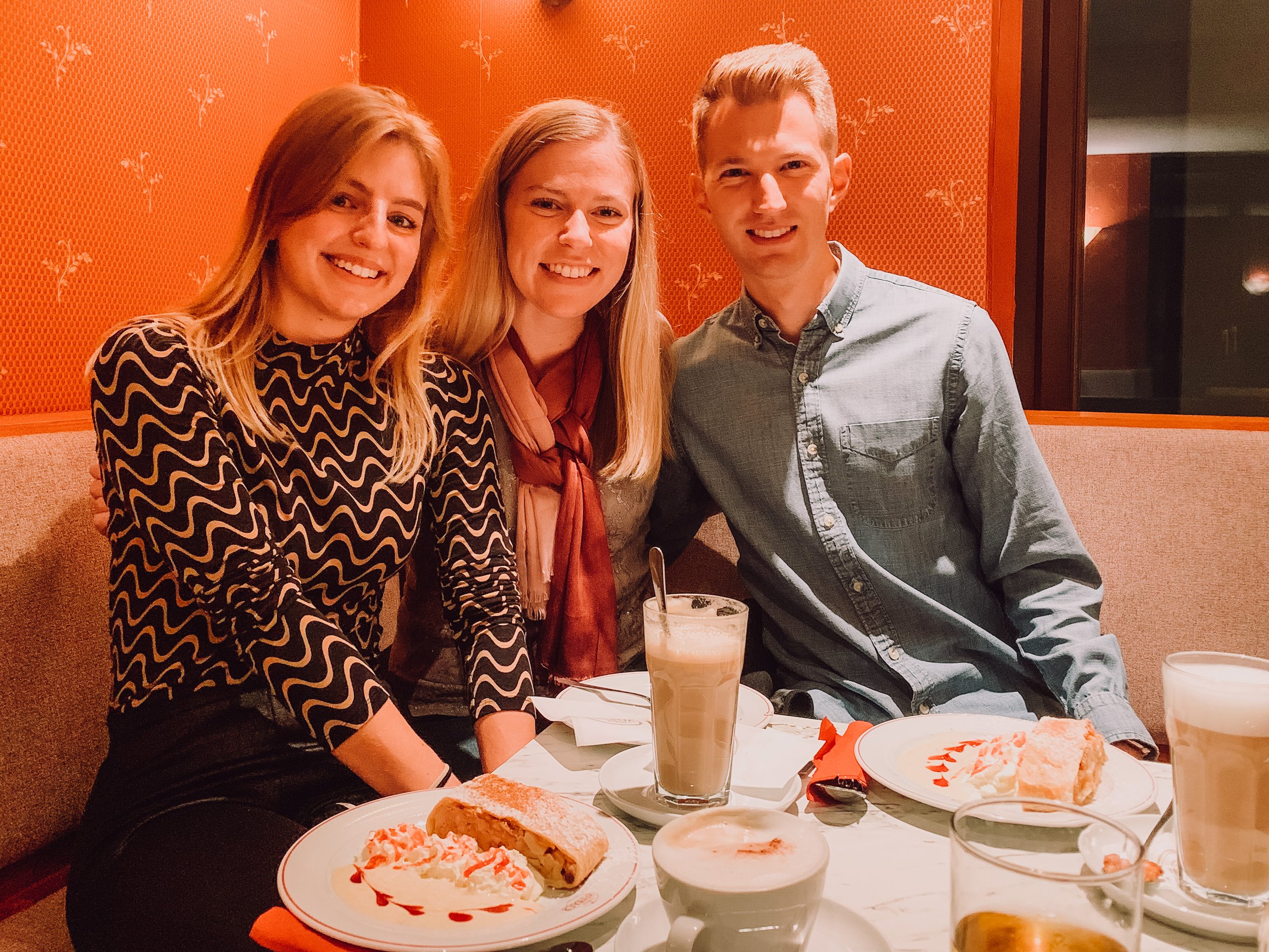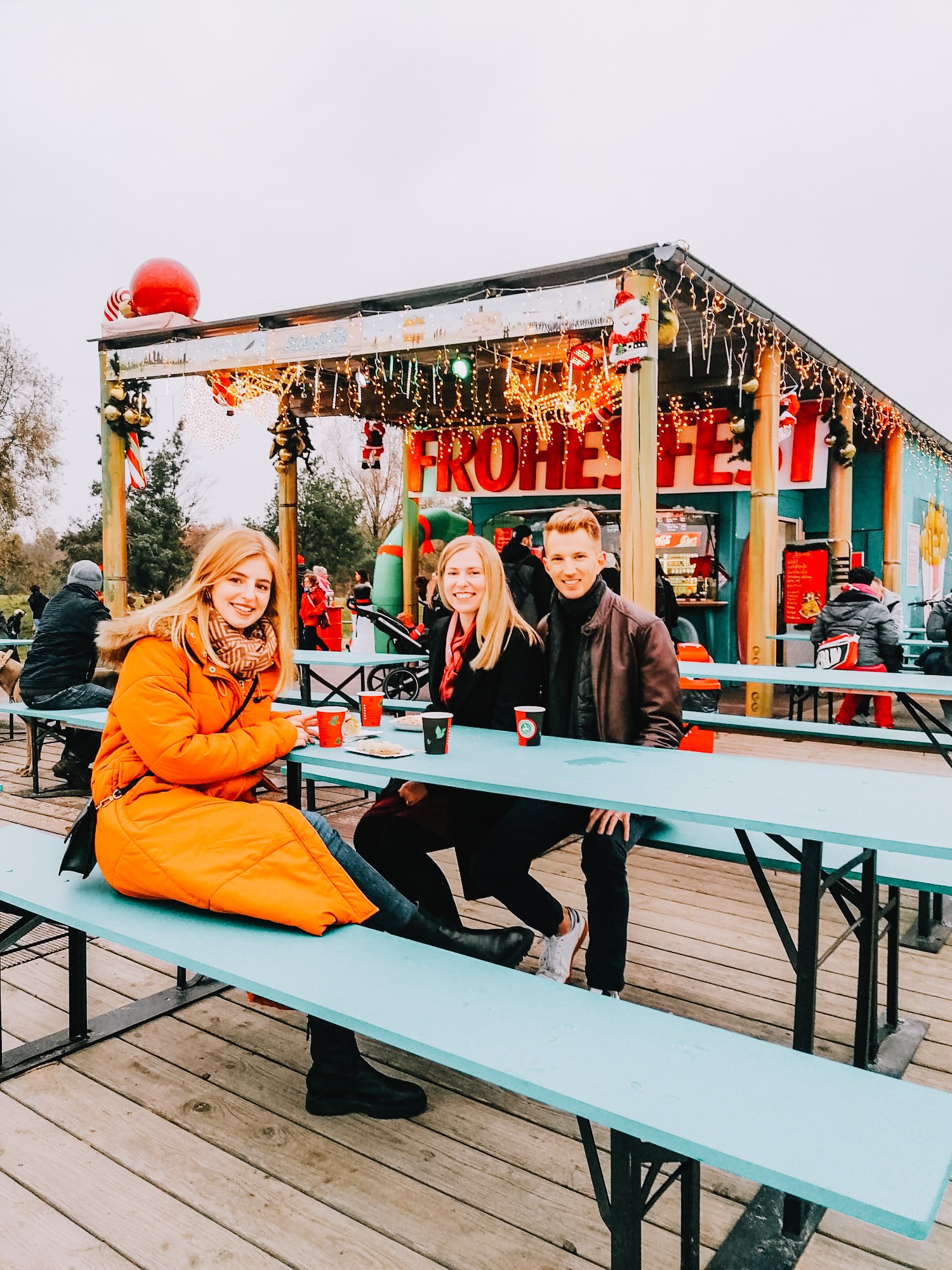Leipzig

We crossed into Germany without any issues, but on the train ride to Munich, I got an email saying our flights leaving Germany had been cancelled due to a new travel ban.
That disrupted the second half of the month, but it also saved us telling each of our moms about the time we booked $12 flights to North Africa on a whim. Some things are better left to retrospect. A little bummed that we wouldn’t be able to see what life is like on the other side of the Mediterranean in Morocco, I didn’t dwell on it too hard because we still had five days planned in Leipzig. Things could look wildly different by the following week, so I didn’t bother wasting the energy worrying about it. We made our connection in Munich and settled onto the high-speed rail for the remainder of the journey.
I had booked us into a hotel for a change but still through Airbnb. I was a little apprehensive at first because it was a modern-looking room in the city center with a kitchen and washer for much less than a flat in the suburbs. But, after thumbing through the reviews, it seemed legit. It came exactly as described with fresh towels daily and a view—definitely a win. We arrived late in the evening, and after two days on the trains, I was ready to rinse off and relax.
During our last week in Sevilla, Tori met several people through her Spanish classes. We formed a little group and met up for dinner or drinks in the evenings. One of the girls we got to know, Johanna, was from Germany and invited us to spend some time getting to know where she’s from if we were ever around. We kept in touch after Spain, and as I was piecing together our route through Northern Europe, I made sure to pencil in a few days.
Two of our friends Georgie and Johanna one evening in Sevilla, Spain.
Out of all of the European countries so far, I’ve felt like Germany is the most culturally similar to us (apart from the U.K.) At the crossroads of Europe, it’s a more car-dependent society compared to its neighbors. The cities tend to sprawl a little more at first glance—though their public transit is much more expansive and efficient than ours. The lifestyle didn’t seem all that different, and the German work ethic is strong. It seemed to be a more individualistic and independent society—which we’re used to. Apart from the language barrier and architecture, it didn’t seem quite as foreign. We both felt bad that neither of us knew any German. Tori managed to learn a few phrases and picked up on the accent remarkably quickly, but I stuck to my French. This was the first country we encountered that we frequently ran into the language barrier. Before, one of us knew enough of the language or English was widely spoken. While plenty of Germans speak impeccable English, we were surprised at the number of times we encountered people who didn’t. Though, there was usually someone nearby who could help.
There’s a concept in the German culture that seems to be as difficult to define as it is to spell: gemütlichkeit. Similar to the Danish concept of hygge, gemütlichkeit is centered around a sense of cosiness, comfort, and belonging. However, it’s much more subjective. It’s doing something good for your soul, and that can differ from person to person or week to week. And as the Germans are much more practical, gemütlichkeit isn’t something that lingers; it’s measured. Otherwise, you might risk becoming gemütlich, and that wouldn’t be productive.
For us after weeks on the road, it was nice just to do normal things for a change. Instead of making lists of the best coffee shops or photo spots or landmarks, we enjoyed just going for strolls through town or having dinner with friends. In the midst of a trip that under normal circumstances would be exhausting and in a climate of constantly shifting unknowns, it was nice just to feel settled for a few days—to share stories over strudel and coffee and not have to order in German. In the light of the colder days, I think we’ve both been missing having a place of our own to come back to. While that’s not a part of this season, a few days in Leipzig to recharge was exactly what we needed before moving on. After all, you can’t have strudel and fondue forever. That might be a little too gemütlich.






